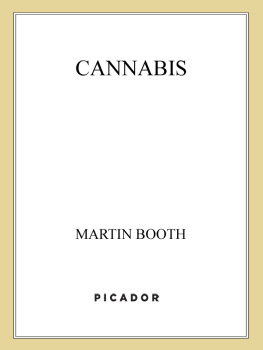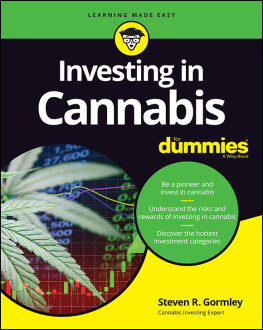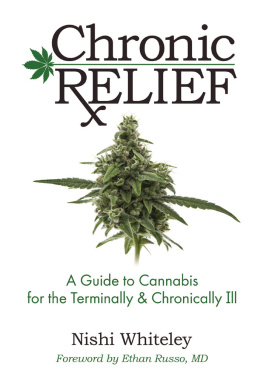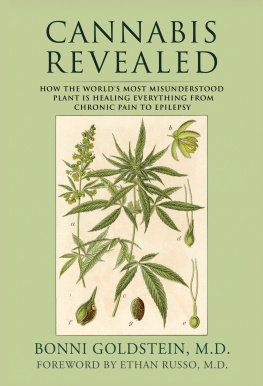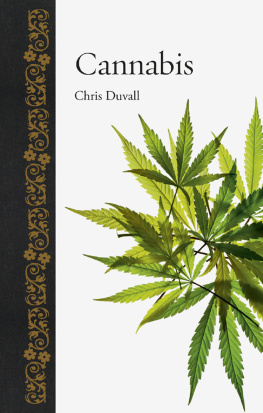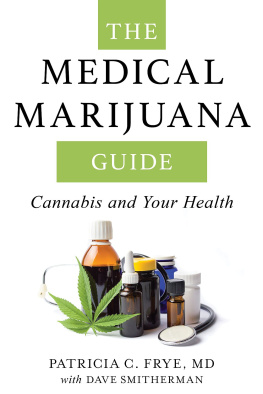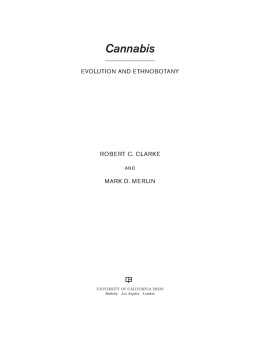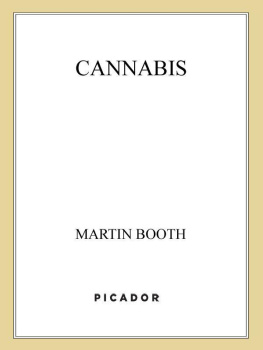The author and publisher have provided this e-book to you for your personal use only. You may not make this e-book publicly available in any way. Copyright infringement is against the law. If you believe the copy of this e-book you are reading infringes on the authors copyright, please notify the publisher at: http://us.macmillanusa.com/piracy.
I am indebted to the following individuals, organizations and institutions for their assistance, without which the writing of this book would have been considerably harder: John Keep, Dr James Roy/University of Nottingham, Asa Hutchinson/US Department of Justice, Anne Chippindale/Antiquity Publications, Dr Jonathan King/North America Curator in the Department of Ethnography at the British Museum, William Breeze, Gerald Laishley, Free Rob Cannabis, Chris Hinett of Henry & Company/Solicitors, Devon County Library, Drug Enforcement Administration/Washington DC, Federal Bureau of Investigation, Central Intelligence Agency, HM Customs and Excise, the Historic Dockyard: Chatham, the Metropolitan Police/London, the Ashmolean Museum, the Bodleian Library, the British Medical Association, the State University of New York Upstate Medical University Health Sciences Library, the Kappa Alpha Fraternity, the Library of the House of Lords, GW Pharmaceuticals Ltd, Princeton University Library, Hemcore Ltd, Penn State University, National Museum of Health and Medicine/Washington DC, United Nations Office for Drug Control and Crime Prevention/Vienna, the Body Shop International, NORML and, finally, my wife, Helen, whose research skills are quite immeasurable.
As a student in the mid-1960s, I lived for a while in two attic rooms in a Victorian terraced mansion in Muswell Hill, North London. It was the heady, hippy era of free love, universal peace, rock music and pot. Wherever one went in London, marijuana was there for the asking, if one knew who to ask. No one questioned if it was dangerous and everyone regarded it as risqu and romantic, a harmless kick against the authority of men in grey suits or policemens uniforms, both of whom drove black Jaguar saloon cars. Harder drugsheroin, cocainewere unheard of and the only really dangerous substance was LSD, which I assiduously avoided.
The rooms below mine were occupied by a window dresser from one of Londons big department stores. His name was Richard but he called himself Ric. Thin and lean, he wore hipster corduroy jeans and flowered shirts with flounced sleeves, and broad kipper ties. In his tiny kitchen, he kept half a kilo of marijuana in a plastic tea dispenser screwed onto the wall. When he pressed the button, he was delivered a sizeable joints-worth of grass which dropped into his Rizla cigarette-paper machine ready for forming between two small rollers. He obtained his supply from a friend, a student at the Royal College of Art. From time to time, the scent of his joints seeped up into my rooms, vaguely thrilling and exotic.
In common with most, I knew little about marijuana or hashish. It derived from the cannabis or hemp plant, came from Morocco or India, was illegal, made you high and cost more than I could regularly afford. As for personal experience of it, Rics second-hand smoke aside, I had eaten it on a few occasions at parties, baked in cookies, but never really undergone the full extent of its euphoric powers.
It was not until my return to the Far East in the summer of 1967, where I had previously lived, that I came upon marijuana in any significant amount. In Vietnam, practically every American soldier and most non-commissioned officers had a personal stash in a pouch, drawbag, polished brass cartridge case or cigarette box. They seemed never to be without a joint between their lips, except when mustered on parade, and not to show the courtesy of sharing what they offered was tantamount to a personal slight. Those I met on R & R in Hong Kong smoked it in the girlie bars of Wan Chai or on the cross-harbour Star Ferry. Few people recognized the perfume of it and the few police officers who did ignored it. That summer, the Royal Hong Kong Police Force was too busy combating Communist-inspired anti-Imperialist riots and the random nail-bombing of bus and tram stops to be bothered with a few battle-weary US soldiers or sailors.
Back in London in late September, re-entering the impoverished world of the student and facing my last year of higher education, I assumed marijuana would be a passing fad, like flared trousers or boots with Cuban heels, that once we all grew up, graduated from university and moved out into the world, we would look back on the occasional joint or hash cookie with nostalgia.
I was wrong.
MARTIN BOOTH
Devon, England, 2003
Authors note: Where financial statistics are givenfor example, Albania exported marijuana worth forty million dollarsthe sum quoted is the street value of the drug to the end user, not the wholesale price or income earned by the producer.
ONCE UPON A TIME, ACCORDING TO A STORY RECOUNTED BY the Islamic chronicler al-Maqrizi (13641442) in AD 1155, the founder of the Persian Sufi Hyderi sect, Haydar, left his cell in a monastery in the mountains near Neyshaur, in the Khorasan region of north-eastern Iran, and went out for a walk. Discovering a plant standing unwithered by the blazing sun, he grew curious and wondered how it withstood the desiccating heat, so he cut a few leaves and chewed on them as he went on his way Usually a taciturn man, he returned in a fickle frame of mind, with a smile on his face. Swearing his fellow monks to secrecy, he told them what he had discovered. Thereafter, it is said, he remained in a capricious mood until his death sixty-six years later. What he had purportedly discovered was a drug from a common plant. The plant was cannabis.
Cannabis is the generic name for hemp, an adaptive and highly successful annual found growing throughout the temperate and tropical zones of the world. Its classification was, for a long while, a botanical enigma. First considered a relative of the nettle (Urticaceae), it was then thought to be a member of the Moraceae which includes the fig but, today, it is regarded as an herbaceous plant with its own specific botanical group, the Cannabaceae, in which only cannabis and Humulus lupulus, the hop, are included. The plant received its full botanical nomenclature from Carolus Linnaeus, the Swedish father of botany, who named it Cannabis sativa in 1753. The latter specific name derived from the Latin meaning cultivated.
Linnaeus chosen generic name was not plucked from the air. He based it upon the word kannabis, the classical Greek word for hemp which, in turn, derived from the Sanskrit cana. Other languages had used similar names: Assyrian qunubu (or qunnapu), Slav konopla, Hebrew qanneb, Arabic qannob, Persian quonnab, Celtic quannab and Spanish caamo. It has been suggested the name may have come from the Assyrian qunnabu, meaning noise: it was thought the Assyrians used cannabis as an incense in religious ceremonies and were quite vocal after inhaling it. On the other hand, kan, which was common to many ancient languages and referred to both hemp and cane, might be a more apt derivation. That said, the third syllable

